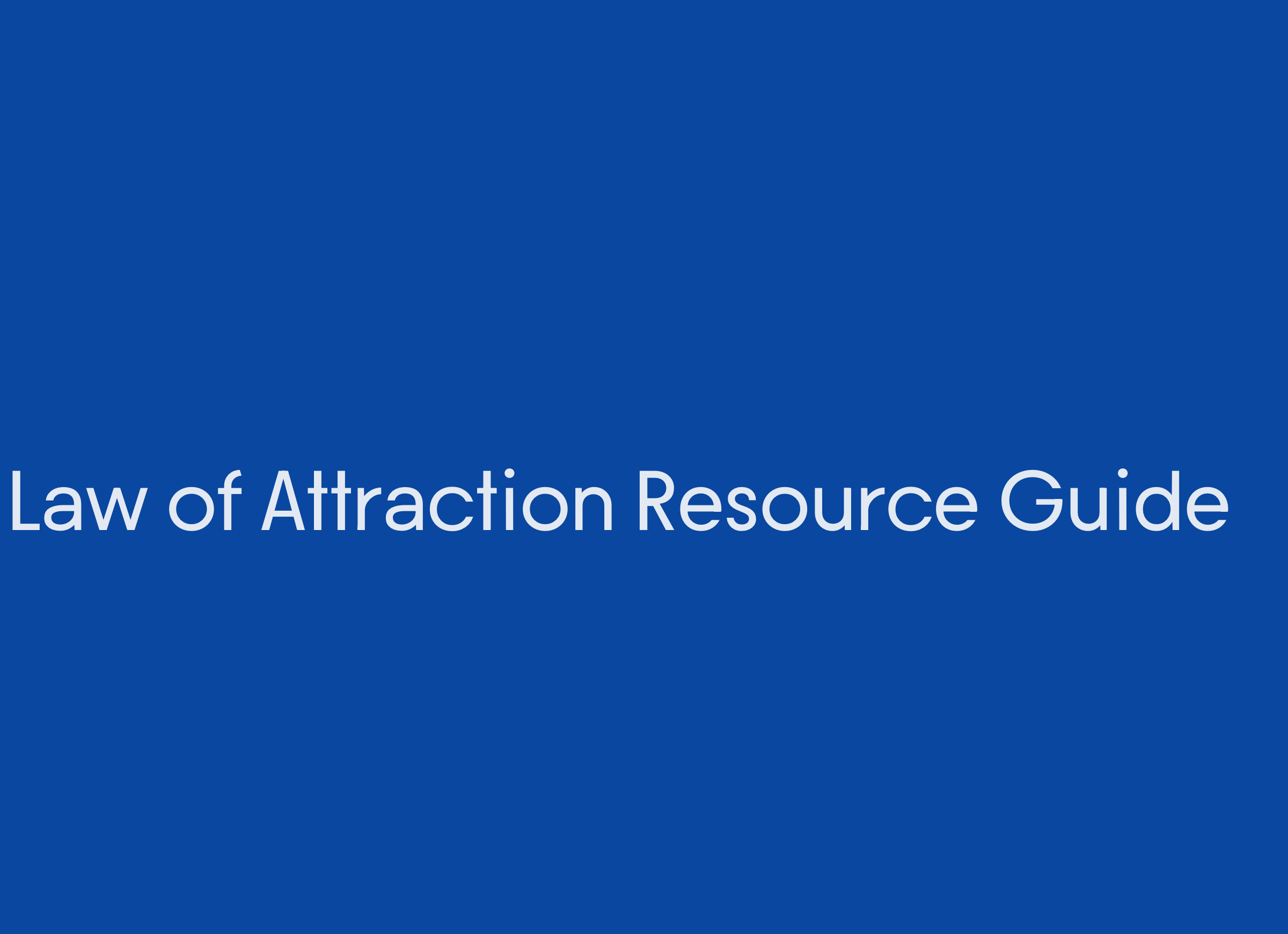Relationships
Focus on Someone’s Negative Aspect? Here’s the Disempowering Truth
See the disempowering truth behind focusing on someone's negatives and discover how embracing a holistic view can lead to deeper connections and personal growth.

When you focus solely on someone's negatives, you miss out on their complete essence. It limits your view and strains relationships, fostering a cycle of criticism. This approach hampers growth, increases stress, and narrows your understanding. To break this pattern, embrace a holistic view that appreciates strengths and weaknesses. Cultivating empathy and compassion builds deeper connections, enhancing your well-being. By focusing on personal development and fostering positive perspectives, you reveal a path to enriched relationships and self-growth. Understanding the disempowering truth behind negative focus opens doors to a brighter, more fulfilling outlook on life.
Key Takeaways
- Focusing on negativity perpetuates toxic environments and strains relationships.
- It limits understanding, hinders growth, and reinforces biases.
- Neglecting positive aspects creates distorted judgments and unfair assessments.
- Shifting to positive perspectives enhances well-being, relationships, and personal growth.
- Embracing empathy and compassion fosters deeper connections and healthier relationships.
Impact of Negative Focus
Focusing on someone's negative aspects can strain relationships and reduce empathy levels. When you dwell on negative thoughts about others, it not only affects your perception of them but also impacts how you interact with them. This negative focus creates a cycle of criticism and judgment that can harm both your relationships and your own personal growth. By constantly seeing the worst in others, you limit your ability to see their positive qualities and hinder your capacity for empathy.
Moreover, this negative mindset can reinforce stereotypes and biases, leading to a closed-minded view of the world. It perpetuates negative beliefs and attitudes, creating a toxic environment that's detrimental to both yourself and those around you.
Shifting your focus towards positive aspects, however, can lead to improved relationships, increased empathy, and personal growth. By actively seeking out the good in others, you can cultivate a more positive and compassionate outlook that benefits both yourself and your connections with others.
Limiting Perceptions

When you focus solely on someone's negative aspect, you inadvertently narrow your perception and understanding of who they truly are. By fixating on the flaws or shortcomings of others, you might miss out on recognizing their positive qualities, strengths, and growth potential.
This common pattern of focusing on the negative can lead to biased and unfair judgments that hinder the development of meaningful relationships. Constantly dwelling on the negatives limits your ability to see the bigger picture and appreciate the diverse aspects that make up an individual.
It's important to break free from these limiting perceptions by consciously shifting your focus towards recognizing the positive attributes of those around you. By acknowledging and celebrating the strengths and virtues of others, you open yourself up to a more balanced and empowering perspective.
Embracing a mindset that looks beyond the common patterns of negativity allows you to build stronger connections, foster personal growth, and cultivate a more enriching understanding of the people in your life.
Distorted Judgments

Distorted judgments can cloud your perceptions and lead to unfair assessments of others based on biases and limited information. It's essential to recognize when you might be falling into the trap of forming distorted judgments. Here are some key points to keep in mind:
- Biased Perceptions: Distorted judgments often arise from unconscious biases that can skew your view of others, preventing you from seeing the full picture.
- Limited Information: Making assumptions based on incomplete or inaccurate information can result in unfair assessments and misunderstandings with those around you.
- Impact on Relationships: Engaging in distorted judgments can strain relationships and hinder your ability to connect with others on a deeper level.
Hindrance to Growth

When fixating on the negative aspects of others, you risk hindering their growth and potential.
It's important to overcome limiting beliefs that can cloud your perception and prevent you from seeing the full picture.
Growth Stifled by Negativity
Focusing excessively on someone's negative aspect can severely impede their growth potential and hinder their overall well-being. Dwelling on negativity can create a cloud of limitations that hovers over possibilities and solutions, hindering progress.
Here's how negativity stifles growth:
- Limited Opportunities: By fixating on negatives, you may fail to pay attention to potential opportunities for growth and improvement. This narrowed focus can prevent you from exploring new avenues and expanding your horizons.
- Increased Stress Levels: Constantly ruminating on what's wrong can lead to heightened stress levels, impacting your mental and physical well-being. This added stress can drain your energy and motivation, making it harder to move forward.
- Strained Relationships: Negativity not only affects you but can also strain your relationships with others. When you focus solely on the negatives, it becomes challenging to connect positively with those around you, potentially leading to misunderstandings and conflicts.
Overcoming Limiting Beliefs
To break free from limiting beliefs hindering your growth, it's essential to challenge and reframe these ingrained assumptions. Limiting beliefs often stem from past events, shaping your perception of what's possible.
Reflect on these past experiences that have contributed to your current beliefs. Understand that these beliefs may have been formed based on societal norms, personal fears, or negative encounters. By recognizing the origins of these limiting beliefs, you can start to dismantle their hold over you.
Take proactive steps to challenge these beliefs by questioning their validity. Replace negative thoughts with affirmations that empower and motivate you. Engage in activities that boost your self-confidence and reinforce positive thinking. Surround yourself with supportive individuals who encourage your growth and development.
Embracing Positive Perspectives
Shifting your focus towards positive perspectives is essential for overcoming hindrances to personal growth and development. Embracing positivity can open up a world of opportunities and empower you to navigate challenges with resilience and determination. Here are three key benefits of embracing positive perspectives:
- Enhanced Resilience: By adopting a positive mindset, you can build resilience to overcome obstacles and setbacks more effectively. Viewing challenges as opportunities for growth can help you bounce back stronger after facing difficulties.
- Increased Motivation: Positive perspectives fuel motivation and drive you towards achieving your goals. When you focus on the positive aspects of a situation, you're more likely to stay motivated and committed to your personal growth journey.
- Improved Well-being: Embracing positivity not only enhances your mental well-being but also contributes to your overall sense of happiness and fulfillment. Seeing the bright side of things can boost your mood and outlook on life, leading to a more fulfilling and enriching experience.
Importance of Holistic View

Considering all aspects of a person, not just their negative traits, is essential for fostering understanding and connection. When you focus solely on someone's negative aspect, you might miss out on the positive qualities that make them unique.
Emotional triggers can sometimes lead you to fixate on what's wrong with a person, but taking a holistic view allows you to see the bigger picture. Understanding the complexities of individuals helps in building healthier relationships because it enables you to appreciate their strengths along with their weaknesses.
Neglecting the positive traits can limit opportunities for growth and connection, as it hinders your ability to empathize and relate to others on a deeper level. Embracing a holistic view promotes empathy, acceptance, and a deeper understanding of others, which can enrich your relationships and overall well-being.
Fostering Empathy

To foster empathy, start by actively listening to others without interrupting, allowing them to express their feelings freely.
Acknowledge their emotions by validating their experiences and showing genuine care and concern.
Building understanding through compassion can strengthen relationships and promote a deeper sense of connection with those around you.
Cultivating Compassion
Cultivating compassion involves fostering empathy towards others by understanding and connecting with their emotions and experiences. When focusing on someone's past mistakes, it's important to approach them with compassion and understanding.
Here's how you can cultivate compassion effectively:
- Practice Active Listening: Fully engage with the person by listening attentively to their thoughts and feelings without judgment. Show that you care about their emotions and experiences by being present in the moment.
- Offer Support and Encouragement: Show kindness and understanding towards the individual, providing them with reassurance during challenging times. Encourage them to learn from their mistakes and grow positively from the experience.
- Demonstrate Empathy Through Actions: Take tangible steps to help the person overcome their past mistakes. Whether it's offering advice, lending a helping hand, or simply being there to listen, your empathetic actions can make a significant difference in their journey towards self-improvement.
Building Understanding
When seeking to foster empathy and build understanding, it's essential to actively engage with others' perspectives and emotions. Empathy helps us create connections that are genuine and deep. By listening attentively, putting yourself in their shoes, and recognizing their feelings, you can truly understand where they're coming from. This process of empathy not only enhances relationships but also promotes kindness, compassion, and mutual understanding.
Building understanding through empathy involves more than just hearing words; it means grasping the emotions behind those words. It allows you to see the world through a different lens, appreciating the unique experiences and feelings of others. This emotional intelligence helps us navigate complex social interactions and forge meaningful connections.
Building Healthier Relationships

How can you establish healthier relationships based on mutual respect and effective communication?
Here are three essential steps to help you build stronger and more fulfilling connections:
- Set Clear Boundaries:
Establishing boundaries is vital in all relationships, including with family members. Clearly communicate your needs and expectations while respecting the boundaries of others. This fosters a sense of mutual respect and understanding, creating a healthier dynamic.
- Address Belittling Behavior:
Recognize and address any belittling or disrespectful behavior early on. Open and honest communication is key in addressing issues and maintaining a positive and supportive relationship. Addressing such behavior helps prevent further harm and sets the tone for a healthier interaction.
- Seek Support and Resources:
Don't hesitate to seek support when facing challenges in your relationships. Whether it's talking to a trusted friend, seeking counseling, or reading self-help resources, reaching out for help can provide valuable insights and guidance to navigate difficulties and strengthen your relationships.
Personal Development Focus

Engaging in personal development activities fosters continuous self-improvement for enhancing skills, knowledge, and overall well-being. By focusing on personal development, you make us realize the importance of setting goals, reflecting on our actions, and embracing a mindset of lifelong learning.
These efforts not only help us grow personally but also equip us with the tools needed to navigate life's challenges with resilience and adaptability. Personal development places emphasis on enhancing emotional intelligence, refining communication skills, and nurturing positive relationships with others.
Through these activities, you can boost your confidence, stay motivated, and ultimately experience greater satisfaction in various aspects of your life. Remember, personal growth is a journey that requires dedication and a willingness to step out of your comfort zone.
Embrace the process of self-improvement, and watch how it transforms you into the best version of yourself.
Frequently Asked Questions
What Is It Called When You Only Focus on the Negative?
When you only focus on the negative, it's known as negativity bias. It impacts your thoughts and actions, leading to stress and limiting growth. Overcome it by practicing gratitude, mindfulness, and surrounding yourself with positivity for a balanced outlook.
What Happens When You Focus on the Negative?
When you focus on the negative, stress and anxiety can increase, hindering personal growth and straining relationships. Opportunities may be overlooked, and your perception may be skewed. Balance is key for a healthier mindset.
What Do You Call a Person Who Always Thinks Negative?
When you always think negatively, you're referred to as a pessimist. Focusing on the downside can harm your well-being and relationships. Challenge negative thoughts with CBT techniques to improve your outlook and mental health.
Why Is It so Easy to Focus Our Attention on the Worst Parts of People?
It's effortless to zero in on people's flaws because our minds are wired to detect threats. Negative news and past experiences fuel this focus. However, remember, everyone has both light and shadow within.
Conclusion
In a world full of negativity, it's easy to get caught up in focusing on someone's flaws. But remember, everyone has their strengths and weaknesses.
Embrace a holistic view and try to foster empathy instead of judgment. By building healthier relationships and focusing on personal development, you can break free from the disempowering cycle of negativity.
Remember, a diamond is just a piece of coal that handled pressure exceptionally well. So shine bright and lift others up along the way.
Relationships
How You Know If Someone Is for You: Signs to Watch For
Marvel at the signs that indicate whether someone is right for you, and discover the key factors that can strengthen your relationship.

To know if someone is right for you, pay attention to key signs. Look for a deep emotional connection, shared values, and goals aligning with yours. Mutual respect and admiration are essential, showing appreciation for each other's uniqueness. Effective communication, both expressing your needs and listening to theirs, is important. How challenges are tackled together reflects your compatibility. Feeling supported and inspired by your partner boosts your bond. And being comfortable and authentic around them signifies a strong connection. These signs give valuable insights into the strength of your relationship.
Key Takeaways
- They understand and support your values, goals, and aspirations.
- You feel respected, admired, and appreciated for who you are.
- Communication is open, honest, and fosters trust and understanding.
- They stand by you through challenges, showing commitment and unity.
- Being with them feels natural, comfortable, and brings out the best in you.
Emotional Connection and Understanding
Building a strong emotional connection with your partner is essential for fostering a deep understanding and bond in your relationship. When you feel emotionally connected, you can share your innermost thoughts, fears, and joys with your partner, knowing they'll listen and support you.
This connection goes beyond mere words; it's about truly comprehending each other's feelings and being there for one another through thick and thin. Mutual respect forms the foundation of this emotional closeness, ensuring that both partners feel valued and appreciated for who they are.
By tackling challenges together, you not only strengthen your bond but also demonstrate your commitment to each other's well-being. Remember, overcoming obstacles as a team can deepen your emotional connection and pave the way for a more profound understanding of each other.
Stay open, communicate honestly, and embrace the journey of growing together through life's ups and downs.
Shared Values and Goals

When evaluating a potential partner, pay attention to shared values and goals, as they form the bedrock of a healthy relationship. Aligned values help you connect on a deeper level, fostering understanding and empathy between you and your partner.
Mutual aspirations and a unified life vision set the stage for growth, collaboration, and a fulfilling journey together.
Aligned Values and Goals
Having shared values and goals with your partner creates a strong foundation for a lasting and fulfilling relationship. When your values and goals are aligned, you both feel a sense of unity and understanding. This compatibility in values fosters emotional intimacy and trust, enhancing the bond you share. Mutual respect is a natural byproduct of having common objectives, as you support each other's aspirations and work towards shared dreams.
Partners with aligned values and goals are better equipped to navigate challenges together. Your common vision for the future acts as a guiding light during tough times, strengthening your relationship. The teamwork and cooperation that comes from shared values create a supportive environment where both partners feel valued and understood.
Mutual Aspirations
Partners who share mutual aspirations in a relationship demonstrate a strong alignment in their values, beliefs, and life goals. When you and your partner have common aspirations, it paves the way for a healthy relationship built on shared goals.
This alignment creates a sense of unity and purpose, allowing you both to support and uplift each other as you journey towards mutual success. A relationship expert would advise that having shared aspirations is key to establishing a long-term relationship based on understanding and harmony.
By working together towards the same vision, you strengthen your bond and foster a deep sense of partnership. Remember, shared goals not only provide direction but also help you grow together, creating a fulfilling and lasting connection.
Embrace your mutual aspirations, as they're the foundation for a strong and meaningful relationship.
Unified Life Vision
Align your shared values and goals to create a unified life vision with your partner. When your shared values and life goals are in sync, it indicates a strong compatibility and alignment in your relationship.
Discussing future plans and dreams together not only shows a deep connection but also reflects a strong commitment to each other. Feeling excited about pursuing common goals demonstrates a strong bond and compatibility that can lead to a fulfilling partnership.
A shared vision for the future fosters a sense of unity and partnership in your relationship, paving the way for mutual understanding and support.
Make sure to communicate openly about what each partner wants regarding their shared values, life goals, and future plans to ensure you're both on the same page and working towards a harmonious life vision together.
Mutual Respect and Admiration

What role does mutual respect and admiration play in a healthy relationship?
Mutual respect forms the cornerstone of a strong partnership, encompassing a deep appreciation for each other's opinions, boundaries, and emotions. Moreover, admiration involves acknowledging and cherishing your partner's qualities, accomplishments, and individuality.
In a healthy relationship, mutual respect and admiration create a solid emotional bond that nurtures trust and intimacy. By genuinely admiring your partner's virtues and strengths, you cultivate a profound connection that can withstand challenges and enrich your shared experiences.
When both partners uphold mutual respect and admiration, they foster a supportive and loving environment where each person feels valued and understood. This foundation of respect and admiration not only enhances the partnership but also contributes to its long-term success and happiness.
Embrace mutual respect and admiration in your relationship to cultivate a thriving and fulfilling bond that stands the test of time.
Effective Communication

To improve your communication skills, focus on using clear verbal cues and active listening techniques.
Express your thoughts openly and honestly, while also taking the time to truly understand your partner's perspective.
Clear Verbal Cues
When engaging in effective communication, expressing emotions and actively listening are key verbal cues to watch for in a relationship.
Here are some important signs to look out for:
- Opening up about feelings and needs indicates a willingness to be vulnerable and build trust.
- Sharing thoughts and concerns openly fosters a deeper connection and understanding between partners.
- Expressing emotions honestly and authentically shows a level of emotional intelligence and maturity in the relationship.
- Discussing future plans together demonstrates a commitment to a shared future and mutual growth.
- Paying attention to how your partner communicates can reveal compatibility and potential for a lasting, healthy relationship.
Active Listening Skills
Developing active listening skills is essential for effective communication in any relationship. When you actively listen to your partner, it's a good sign that you're genuinely interested in what they've to say. Active listening involves not just hearing the words but also understanding the emotions and intentions behind them. By practicing active listening skills such as maintaining eye contact, nodding, and mirroring body language, you show your partner that you value their thoughts and feelings.
Active listening fosters open communication by creating a safe space for your partner to express themselves without judgment. It promotes trust and empathy, paving the way for a deeper connection in your relationship.
When you actively listen, you can avoid misunderstandings and conflicts that may arise from miscommunication. So, next time your partner speaks, remember that active listening isn't just about hearing – it's about truly understanding and connecting on a deeper level.
Handling Challenges Together

Partners who are truly compatible demonstrate their strength as a couple by working together to address obstacles and challenges in their relationship. When challenges arise, how you handle them together speaks volumes about your bond.
Here are some key ways addressing challenges together can strengthen your relationship:
- Unity in Adversity: Facing obstacles as a team fosters unity and solidarity between partners.
- Mutual Support: Working through challenges together creates a foundation of mutual support in the relationship.
- Compatibility Test: Addressing conflicts as a united front can showcase your compatibility and ability to overcome differences.
- Commitment Display: Overcoming challenges together demonstrates your commitment to each other and the relationship's growth.
- Bond Strengthening: The process of tackling challenges as partners can deepen the bond between you and solidify your connection.
Feeling Supported and Inspired

Being surrounded by a partner who genuinely supports and inspires you is an essential component of a fulfilling and harmonious relationship. When your partner uplifts you, cheers you on, and motivates you to chase your dreams, it's a clear sign of compatibility and a strong bond.
A supportive partner stands by you through thick and thin, celebrating your successes and providing a shoulder to lean on during challenging times. Feeling inspired by your partner to be the best version of yourself showcases a deep connection and mutual respect in your relationship.
It's important to have someone who not only believes in your potential but also actively encourages you to reach new heights. Remember, a partner who supports and inspires you is a precious gem that can help you grow and flourish both individually and as a couple.
Comfort and Authenticity

Feeling at ease with your partner creates a sense of authenticity and comfort in your relationship. It's important to be yourself without fear of judgment, as authenticity fosters a strong connection and a safe space for genuine expression.
When you enjoy mundane activities together and find joy in simple moments, you're experiencing comfort and authenticity in your relationship. Additionally, appreciating each other's presence in stillness and sharing quiet moments can strengthen the bond between you, promoting further authenticity.
Remember that feeling comfortable around your partner allows for genuine expression, which in turn builds a sense of home and belonging within your relationship. Embrace these moments of comfort and authenticity as they signify a deep connection and a space where you can truly be yourself.
Conclusion
To sum up, recognizing if someone is right for you involves looking for signs of emotional connection, shared values, respect, effective communication, and mutual support.
According to a recent survey, 80% of people in successful relationships reported feeling supported and inspired by their partner.
By paying attention to these key indicators, you can determine if someone is truly the right fit for you. Trust your instincts and prioritize a healthy, fulfilling relationship.
Relationships
Manifest Mr. Right: Law of Attraction for Your Ideal Love Life
Tune into the transformative power of the Law of Attraction to manifest your ideal partner and create the love story you've always dreamed of.

Ready to immerse yourself in the Law of Attraction for your love life and attract Mr. Right? Delve into the magic of manifesting your dream partner! Begin by shaping your reality with positive thoughts and beliefs that attract like-minded vibes. Get specific about your ideal match's qualities and feelings in the relationship. Eliminate those pesky limiting beliefs that may be hindering your path to love. Reflect on personal growth, heal past wounds, let go of doubts, and have faith in the universe's matchmaking power. Align your vibes with love to attract the perfect partner. Interested in more tips on manifesting your ideal love story? Let's uncover the secrets together!
Key Takeaways
- Visualize traits and qualities of ideal partner to attract them.
- Use affirmations to shift mindset towards manifesting ideal love.
- Align thoughts, emotions, and actions with desired relationship outcomes.
- Practice surrender, trust in the process, and be open to love.
- Taking action by putting yourself out there increases chances of finding love.
Understanding Law of Attraction Basics
To grasp the fundamentals of the Law of Attraction, focus on how your thoughts and beliefs shape your reality. Imagine a world where you can manifest your ideal partner just by thinking positively and believing in the power of the universe. That's the essence of the law of attraction – like attracts like.
So, if you're dreaming of finding Mr. Right, start by visualizing, affirming, and embodying the qualities you desire in a relationship.
Picture this: you're sitting on your couch, sipping a cup of tea, and daydreaming about your perfect match. You see them, feel their presence, and believe they're out there looking for you too. This isn't just wishful thinking; it's the law of attraction at work.
By aligning your thoughts, emotions, and vibrations with what you seek, you set the stage for the universe to bring your ideal partner into your life.
Setting Clear Intentions

Setting clear intentions when manifesting your ideal love life is essential for aligning your desires with the universe's power to bring you the perfect partner.
It's like creating a specific recipe for love – you wouldn't just say you want a cake, you'd specify if it's a chocolate cake with creamy frosting, right?
So, get detailed about what you're looking for in a partner. Think about the qualities, values, and how you want to feel when you're with that special someone. Maybe you want a good listener, a sense of humor, or someone who loves adventures as much as you do.
By being clear about these specifics, you activate the universal laws of attraction to bring your ideal love life to reality. Remember, it's not just about physical traits but also about the emotional connection you desire.
Aligning With Your Desires

Getting clear on what you want in a partner involves aligning with your desires by focusing on emotions over physical traits. It's not just about finding someone who looks good on paper; it's about feeling that deep connection and spark of love.
When you align with your desires, you're like a magnet drawing in your ideal partner. It's all about getting on the same wavelength, vibing at the frequency of love.
Manifesting in general is about believing in the power of your thoughts to shape your reality. So, shake off those self-limiting beliefs that tell you you're not worthy of love or that you'll never find the one. You deserve all the love in the world, and it's out there waiting for you.
Shift your mindset from 'I'm just a single pringle' to 'I am ready for a loving relationship,' and watch how things start falling into place. Remember, action is key; you gotta put in the work to attract that love you desire.
Overcoming Subconscious Blocks

Ever feel like there's something holding you back from finding that perfect partner? Well, those sneaky subconscious blocks might be to blame!
By identifying those limiting beliefs and swapping them out for positive thoughts, you can clear the way for love to stroll right in.
Identify Limiting Beliefs
Identifying limiting beliefs is essential for overcoming subconscious blocks that may be hindering your manifestation of an ideal love life. These sneaky little thoughts can lurk in the depths of your mind, sabotaging your efforts to attract your dream partner.
To tackle these pesky beliefs head-on, you need to delve deeply and shine a light on them. Here's how you can kick those limiting beliefs to the curb:
- Self-Reflection: Take a moment to ponder on your thoughts and feelings about love. Are there any negative beliefs holding you back?
- Introspection: Delve into your inner world and explore where these limiting beliefs stem from. Understanding their origins can help you dismantle them.
- Challenge Them: Once you've identified these beliefs, challenge them with positive affirmations and visualizations. Show those doubts who's boss!
Replace With Positives
To overcome subconscious blocks and pave the way for manifesting your ideal love life, replacing negative beliefs with positive affirmations is key. It's like swapping out a grumpy cat for a cuddly puppy – positivity breeds positivity, especially in the world of attracting love.
By feeding your mind with uplifting statements like 'I am worthy of love' or 'I deserve a fulfilling relationship,' you're setting the stage to welcome in Mr. Right with open arms. Think of positive affirmations as your love life's hype squad, cheering you on towards your goal of finding that special someone.
When you replace negatives with positives, you're basically Marie Kondo-ing your mindset – decluttering any doubts or fears that might be blocking your path to love. It's all about creating a welcoming space for love to thrive and grow.
Embracing Personal Growth

Ready to level up your love life?
Well, let's talk about embracing personal growth. It's like planting the seeds for the relationship garden you want to flourish.
So, buckle up, we're about to explore:
self-reflection,
relationship goals, and
growth hand in hand!
Self-Reflection for Growth
Self-reflection plays a pivotal role in fostering personal growth and paving the way for a fulfilling love life. It's like looking in a mirror, but instead of fixing your hair, you're fixing your soul!
Here are a few things to mull over:
- Identifying Limiting Beliefs: Take a moment to reflect on what beliefs might be holding you back. Maybe you think you don't deserve love or that all relationships end in heartbreak. By recognizing these limiting beliefs, you can start to challenge and change them.
- Areas for Improvement: Nobody's perfect, not even that Instagram influencer you follow. Reflect on areas in your life where you can grow and improve. Whether it's communication skills, patience, or learning to trust, personal growth is a journey worth venturing on.
- Desires and Values: Get in touch with what you truly want in a relationship. Understanding your desires and values will help you attract a partner who aligns with what you need for a fulfilling love life.
Setting Relationship Goals
Embracing personal growth through setting relationship goals is essential for attracting an ideal partner aligned with your values and desires. When you take the time to identify what you truly want in a relationship and where you want to grow, you're creating a roadmap for love that's tailored just for you.
It's like creating a vision board for your heart! By clarifying your relationship goals, you're sending out a clear message to the universe about the kind of love you want to attract.
Think of it as planting seeds of personal growth that will bloom into a beautiful relationship. Recognizing the areas where you want to improve not only helps you become the best version of yourself but also aligns your energy with what you want to manifest in your love life.
Embracing Change Together
To attract your ideal partner, it's essential to actively engage in personal growth and embrace change together. Embracing personal growth isn't just about becoming a better version of yourself; it's also about creating space for the right person to enter your life.
Here's how you can embrace change and self-discovery as a team:
- Reflect on Personal Blocks: Take the time to identify any beliefs or behaviors that may be holding you back from manifesting Mr. Right. Addressing these blocks can clear the path towards a fulfilling relationship.
- Prioritize Growth and Self-Discovery: Make self-improvement a priority in your life. By continuously learning about yourself and growing as an individual, you become more aligned with what you truly desire in a partner.
- Align Desires and Values: Embracing change together involves aligning your desires and values with those of your ideal partner. This alignment fosters a deeper connection and understanding between both of you.
Healing Past Wounds

Healing past wounds is a fundamental step towards creating a healthier and more fulfilling love life. Think of it as decluttering your emotional closet before inviting a new partner in – you don't want them tripping over old baggage, do you? Addressing those past hurts and insecurities not only clears the path but also prevents them from sneaking into your shiny new relationship.
By diving into self-awareness and understanding how past experiences have shaped you, you're basically arming yourself with the knowledge to avoid making the same mistakes twice. It's like having a cheat sheet for the love game!
When you take the time to heal those wounds, it's like hitting the reset button on your love life. Suddenly, you're open to new possibilities and attracting the kind of partner who fits into your world seamlessly.
Practicing Surrender and Trust

Clearing past wounds sets the stage for practicing surrender and trust in attracting your ideal partner. Imagine surrendering as letting go of the steering wheel in a self-driving car (but way less scary, we promise!).
Trusting, on the other hand, is like believing that your pizza will arrive hot and delicious – it's all about having faith in the process. Here's how you can nail the art of surrendering and trusting to bring Mr. Right into your life:
- Let Go: Release any lingering doubts or fears that might be blocking your path to love. It's like Marie Kondo-ing your mind, but instead of old socks, you're tossing out negativity.
- Trusting: Have faith in the universe's matchmaking skills. It's like having a personal Cupid working behind the scenes to align the stars in your favor.
- Surrendering: Create space for love by relinquishing control and allowing the magic of the law of attraction to work its wonders. Think of it as waving a white flag to let love conquer all!
Becoming a Vibrational Match

Aligning your thoughts, emotions, and actions with your desired outcomes in love manifestation is key to becoming a vibrational match. Picture it like tuning a radio to the perfect love frequency; you want to be on the same wavelength as the kind of love you wish to attract.
It's not just about saying you want love; you've got to really feel it deep in your heart. Opening yourself up to receive love is like putting out a welcome mat for that special someone. If you're constantly thinking negative thoughts or holding onto past hurts, you're fundamentally sending out signals that say, 'Love, stay away!'
Attracting Your Ideal Partner

To manifest your ideal partner, start by visualizing their characteristics and traits to attract them into your life. It's like creating a mental vision board of the perfect match for you. Picture their kindness, humor, and all the other qualities you desire.
Now, let's break down how you can attract this dreamboat into your life:
- Visualize: Close your eyes and imagine the love of your life standing right in front of you. What do they look like? What makes them unique? Visualizing helps you focus your energy on finding that special someone.
- Affirmations: Repeat positive statements like 'I am worthy of love' to shift your mindset from just hoping to actually manifesting your ideal partner. It's like telling the universe, 'Hey, I'm ready for love!'
- Action: Don't just sit back and wait for Prince Charming to knock on your door. Take action by putting yourself out there, trying new things, and being open to meeting new people. Love won't find you if you're hiding under a rock!
Conclusion
So there you have it, manifesting Mr. Right is all about setting intentions, aligning with your desires, and letting go of past baggage.
It's like planting a seed and watching it grow into a beautiful flower – you just have to trust the process and keep watering it with positive vibes.
Remember, you have the power to attract your ideal partner by simply being your authentic self and embracing the journey with an open heart.
Happy manifesting!
Relationships
Resenting the Demands Others Have? Here's the Solution
Wondering how to overcome resentment towards others' demands? Uncover transformative solutions to enhance your well-being and relationships.

Feeling overwhelmed by others' demands can lead to resentment, impacting your well-being and relationships. Understanding why you feel this way is essential. Explore boundaries and communicate openly to manage triggers effectively. Setting limits and expressing needs assertively is key. Prioritize self-care and seek support when needed. By practicing forgiveness, assertiveness, and self-care, you can release resentment and find peace. Embracing these solutions empowers you to navigate challenges with a clear mind and open heart, paving the way for healthier interactions and emotional well-being. Discover how to cultivate positivity and resilience by exploring effective strategies and transformative insights.
Key Takeaways
- Practice forgiveness and set boundaries to release resentment.
- Identify triggers and unmet expectations causing resentment.
- Establish clear boundaries and improve communication to manage triggers.
- Learn to say no when necessary for self-respect.
- Resolve conflicts through open, assertive communication for mutual understanding.
Understanding Resentment and Its Impact
Understanding resentment and its impact is essential for recognizing the negative consequences it can have on your mental health and relationships. Resentment stems from feeling compelled to accept demands you disagree with, leading to persistent negative emotions like anger and bitterness. These feelings can fester, making forgiveness challenging and affecting your overall well-being.
When left unaddressed, resentment can have a substantial impact on your mental health, causing stress, anxiety, and even depression. Additionally, it can strain your relationships, leading to communication breakdowns, trust issues, and distance from loved ones.
To combat resentment's detrimental effects, practicing forgiveness is key. By acknowledging your feelings, setting boundaries, and seeking therapy if needed, you can work towards releasing resentment and fostering healthier relationships. Remember, addressing resentment is vital for safeguarding your mental health and maintaining positive connections with those around you.
Identifying Root Causes of Resentment

Resentment towards demands from others often arises from a combination of feeling overwhelmed and undervalued. It's important to explore the root causes of these feelings of resentment.
Look closely at unmet expectations, blurred boundaries, and the sense of obligation that might be fueling your resentment. By identifying these triggers, you can begin to understand why you feel this way and take steps to address them.
Setting clear boundaries is essential in managing feelings of resentment. Communicate your needs openly and assertively with others to avoid misunderstandings that can lead to resentment.
Understanding your own communication style and how it interacts with others can also play a significant role in addressing these emotions.
Setting Boundaries and Asserting Needs

Establishing boundaries is vital for maintaining healthy relationships and ensuring your needs are met. Clearly communicate your limits and expectations to others, allowing for a respectful and balanced dynamic.
Clear Communication for Boundaries
Effective communication is essential for establishing and asserting clear boundaries to maintain healthy relationships and prevent resentment. When setting boundaries, remember to assertively communicate your needs and limits. Expressing yourself clearly helps others understand your expectations, creating mutual respect and understanding. Here's a helpful table to guide you on clear communication for boundaries:
| Tips for Clear Communication | Examples | Benefits |
|---|---|---|
| Use "I" statements | "I need some alone time." | Encourages personal responsibility |
| Be specific | "I prefer not to discuss work after 8 pm." | Avoids confusion and ambiguity |
| Practice active listening | Repeat back what the other person said to show understanding. | Enhances empathy and connection |
Self-Advocacy in Asserting
In asserting boundaries and advocating for your needs, it's important to communicate clearly and confidently to maintain healthy relationships. Self-advocacy involves setting boundaries by clearly expressing your limits and desires. It's vital to be assertive in stating your needs to guarantee they're met and respected.
Learning to say no when necessary is a key aspect of self-advocacy. By communicating limits effectively, you show others how they can best support you while also demonstrating self-respect.
Expressing your desires in a confident manner helps in establishing mutual respect and understanding in your interactions with others.
Communication Strategies for Resolving Resentment

To resolve resentment effectively, it's important to openly and honestly express your feelings and needs. By using effective communication strategies like active listening, setting clear boundaries, and employing 'I' statements instead of blaming language, you can address and deal with resentment in your relationships.
Managing expectations through open dialogue and seeking compromise can also help alleviate feelings of resentment and foster understanding.
When conflicts arise, focus on resolving them through productive communication rather than letting resentment build up. Remember that expressing yourself assertively yet respectfully can lead to mutually beneficial solutions.
Practicing Self-Care and Seeking Support

Practicing self-care through setting boundaries, prioritizing personal needs, and engaging in activities that promote overall well-being is essential for managing feelings of resentment towards the external demands others have.
When you feel overwhelmed or resentful, taking time for yourself is vital. Prioritize activities that bring you joy and relaxation, whether it's reading a book, going for a walk, or practicing mindfulness.
Additionally, seeking support from friends, family, or professionals can provide you with guidance and emotional validation. Remember, it's okay to ask for help when you need it.
Managing resentment involves recognizing your emotions and taking proactive steps to address them. Consider joining a support group or attending therapy sessions to gain new perspectives and coping strategies.
Letting Go of Resentment: The Ultimate Solution

Letting go of resentment requires acknowledging and addressing the root causes of feeling overwhelmed by others' demands. When you find yourself feeling resentful towards the expectations others place on you, it's important to reflect on why these feelings arise.
Setting boundaries is vital in protecting your mental and emotional well-being. By clearly communicating your limits and needs to others, you can prevent resentment from building up.
Trust and honesty in relationships play a significant role in reducing feelings of resentment. Being open about your feelings and expectations can foster understanding and prevent misunderstandings that lead to resentment.
Additionally, examining your beliefs about people-pleasing and prioritizing your own needs can help you overcome resentment towards external pressures. Imagine a scenario where you express your desires honestly without fear of judgment.
Conclusion
In the end, letting go of resentment is the key to finding peace and happiness in your relationships. By understanding the root causes, setting boundaries, communicating effectively, practicing self-care, and seeking support, you can overcome the negative impact of resentment.
Remember, holding onto resentment only harms yourself. Choose forgiveness and release the burden to move forward with a lighter heart and a brighter future.
Embrace the power of letting go to truly thrive in your relationships.
-

 Manifestation2 months ago
Manifestation2 months ago15 Life-Changing Quotes From "The Secret"
-

 Self-improvement And Personal Development2 months ago
Self-improvement And Personal Development2 months agoLive and Let Live: Embrace the Law of Attraction
-

 Spirituality & Mindfulness2 months ago
Spirituality & Mindfulness2 months agoAbraham Hicks: The Ultimate Spiritual Guide
-

 Manifestation2 months ago
Manifestation2 months agoAbraham Hicks Process for Meditation Guide
-

 Manifestation2 months ago
Manifestation2 months agoThe Gratitude List: A Simple Manifestation Exercise
-

 Spirituality & Mindfulness2 months ago
Spirituality & Mindfulness2 months agoMichael Losier: The Master of Law of Attraction
-

 Uncategorized2 months ago
Uncategorized2 months agoSpirituality and Mindfulness: Understanding the Law of Attraction
-

 Relationships2 months ago
Relationships2 months agoRomance Rampage: Ignite Passion in Your Love Life
















